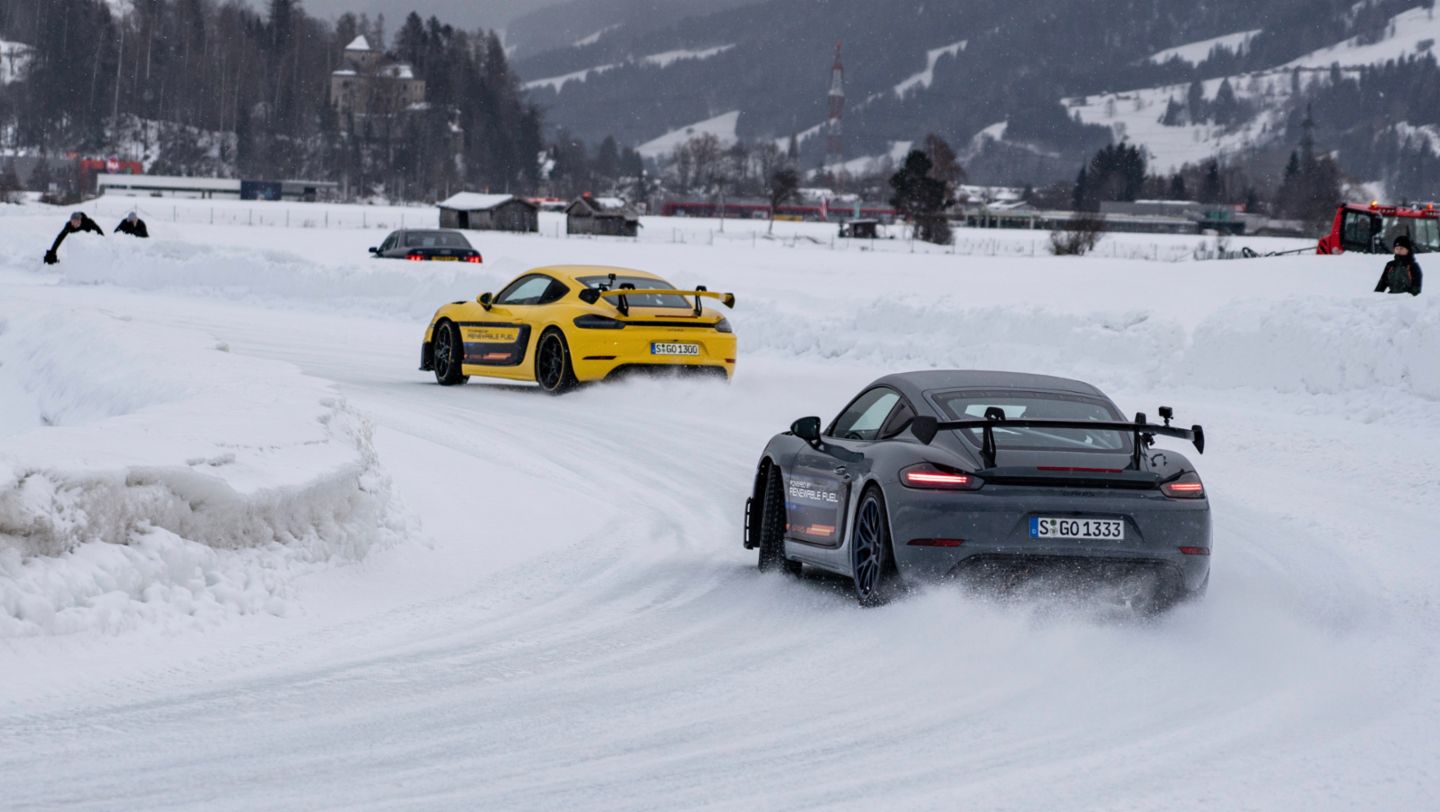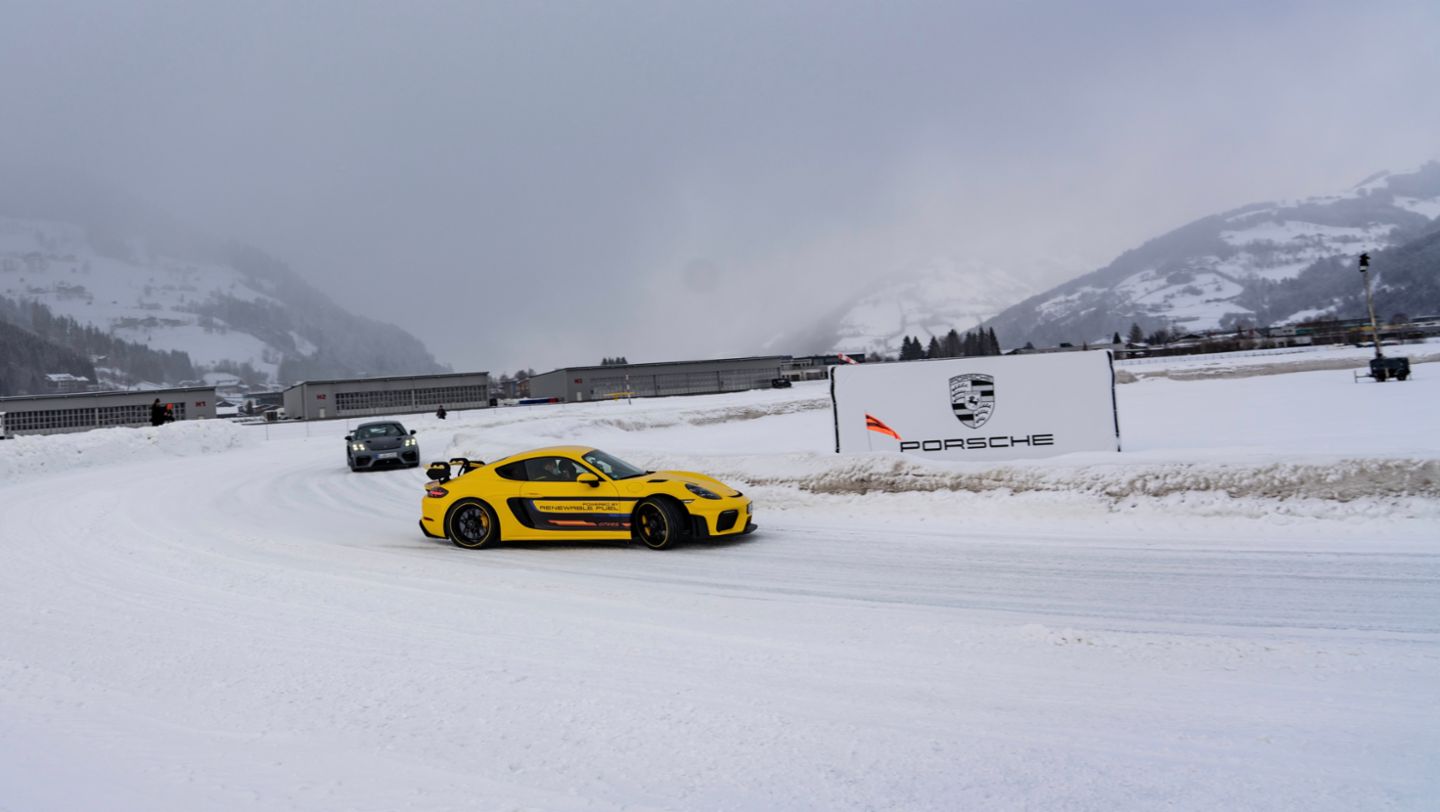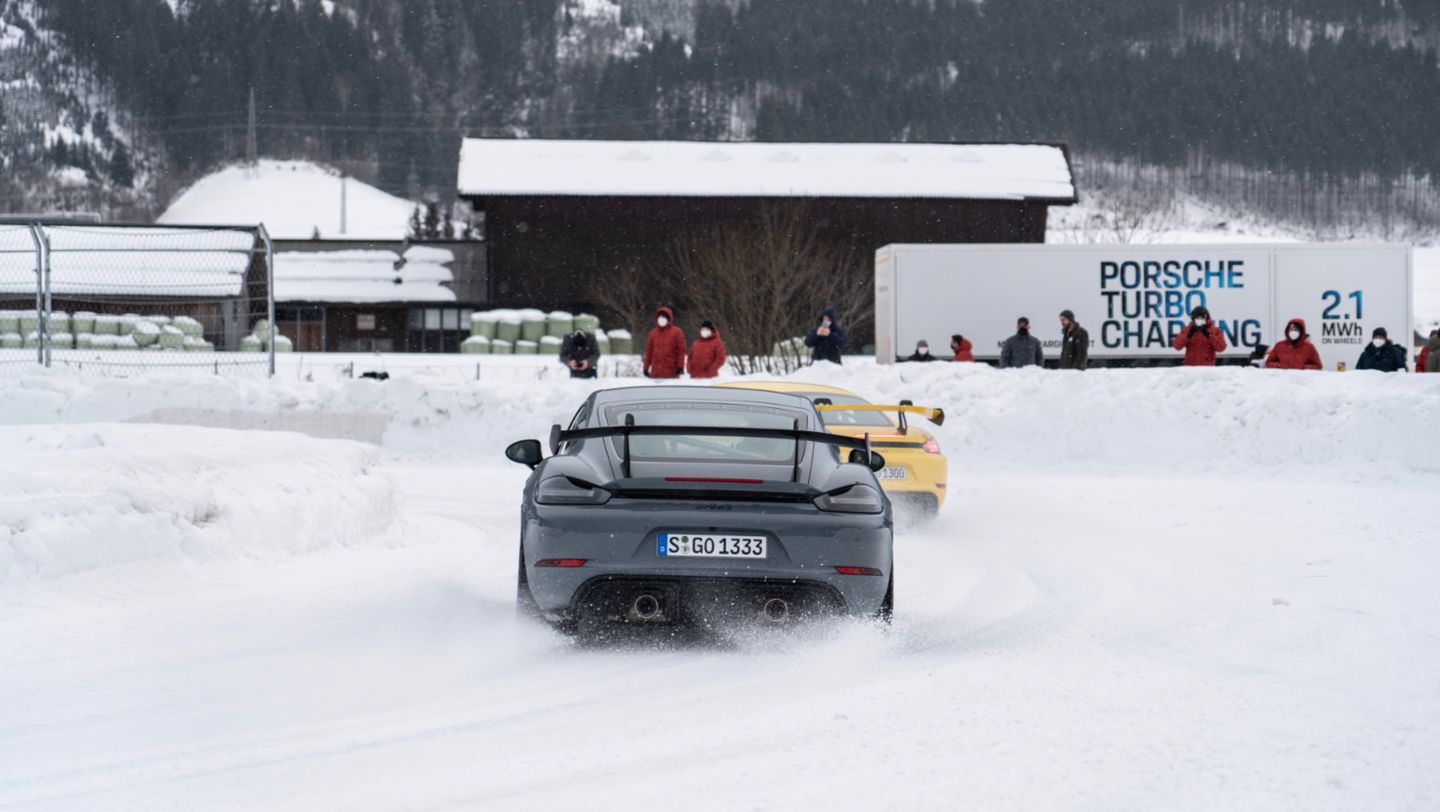The GT4 RS models were powered by synthetic fuels, which can make an important contribution to lowering carbon emissions in the transport sector. In this case, the fuel was a renewable petrol based on an advanced biofuel made of food waste products. The fuel had previously demonstrated its suitability for use in high-performance Porsche engines in the Porsche Mobil 1 Supercup, where it was used in all the teams’ 911 GT3 Cup cars for every race of the 2021 season.
Lowering carbon emissions in the transport sector
Porsche Board Member for Research and Development Michael Steiner explains: “The huge number of vehicles on the world’s roads – some 1.3 billion according to the latest figures – means that the transition to electric mobility is not happening fast enough to achieve the goals set out in the Paris Agreement. In addition, different regions of the world are adopting electric mobility at varying speeds, meaning vehicles with combustion engines will remain on the road for decades to come.”
With fuels produced in a virtually CO₂-neutral manner, existing vehicles could make their own contribution to rapid CO₂ reduction. “We urgently need a solution for the sustainable operation of existing fleets,” stresses rally legend Walter Röhrl. “This goal can be achieved with green fuels, which are a sensible complement to electric vehicles.” In order to actively drive this development forward, construction of the first factory initiated by Porsche for the production of eFuels kicked off just a few weeks ago.

eFuels are produced using electricity generated by wind power. Water is broken down into its components, hydrogen (H2) and oxygen (O2), via electrolysis. The hydrogen is then processed with CO₂ extracted from the air to produce e-methanol. In the next step, known as methanol-to-gasoline synthesis, it is turned into a synthetic raw gasoline, which in turn is processed into a standard-compliant gasoline fuel that can be used in all gasoline engines.
The Haru Oni joint project, involving Porsche, Siemens Energy and various other international partners, is the world’s first integrated, large-scale commercial plant to manufacture these synthetic, almost carbon-neutral fuels. Located in the Magallanes Province of southern Chile, the plant takes advantage of the region’s ideal conditions for generating wind energy, which will be used as a sustainable source of electricity to produce synthetic petrol.









